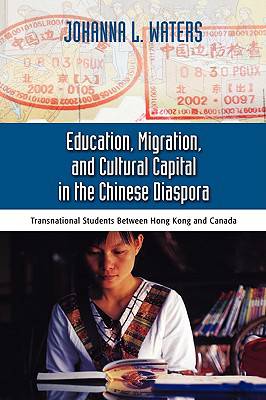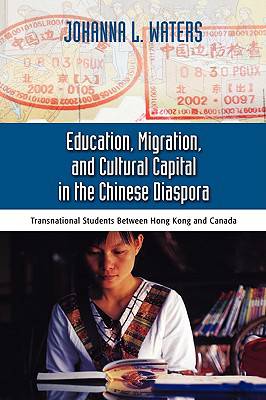
- Retrait gratuit dans votre magasin Club
- 7.000.000 titres dans notre catalogue
- Payer en toute sécurité
- Toujours un magasin près de chez vous
- Retrait gratuit dans votre magasin Club
- 7.000.0000 titres dans notre catalogue
- Payer en toute sécurité
- Toujours un magasin près de chez vous
Education, Migration, and Cultural Capital in the Chinese Diaspora
Transnational Students Between Hong Kong
Johanna Waters
Livre relié | Anglais
142,45 €
+ 284 points
Description
provides an important and timely contribution to an emergent body of work, reflecting increasing interest in the internationalisation of education and the transnational mobility of students worldwide. The last two decades have seen the dramatic expansion and consolidation of what has astutely been called an 'international education industry', involving the increased marketisation and branding of education at the national and institutional levels, the development of educational courses geared towards attracting international students, the establishment of 'offshore' schools and university campuses by Western institutions in Asia, and, most conspicuously, the mobility of nearly 3 million international students as they seek out valuable and internationally recognised academic credentials outside their home countries. These students are cognisant of an emergent global map of 'cultural capital', and the means by which this cultural capital can be converted into economic capital in an international, knowledge-based labour market. Drawing on the work of Pierre Bourdieu and other more recent contributors to the geography and sociology of education, this innovative book sets out an agenda for examining and understanding the transnational mobility of international students and the important national and institutional contexts within which they move. Its striking conclusions are based on substantive empirical research in Canada and Hong Kong, involving in-depth interviews with transnational students and a number of institutional actors directly involved in the internationalization of education. Education, Migration, and Cultural Capital in the Chinese Diaspora would be of significant interest to academics working in the fields of human geography, sociology, social anthropology, migration studies, and education, and is also a valuable text for any educational practitioners involved in the process of 'internationalisation'.
Spécifications
Parties prenantes
- Auteur(s) :
- Editeur:
Contenu
- Nombre de pages :
- 264
- Langue:
- Anglais
Caractéristiques
- EAN:
- 9781604975437
- Date de parution :
- 18-11-08
- Format:
- Livre relié
- Format numérique:
- Genaaid
- Dimensions :
- 152 mm x 229 mm
- Poids :
- 557 g

Les avis
Nous publions uniquement les avis qui respectent les conditions requises. Consultez nos conditions pour les avis.






